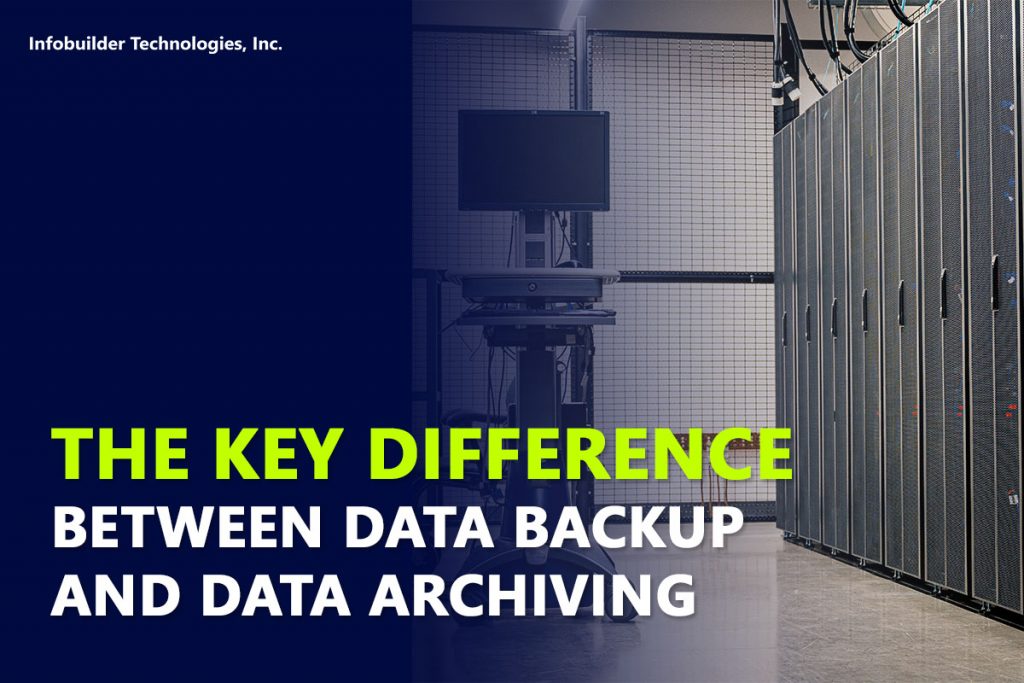Technobullies

The Key Difference Between Data Backup and Data Archiving
Posted on October 25, 2021
Backup vs archive. Two words that are often used interchangeably but have very different meanings. It’s important to understand the difference between them to ensure that your data storage methodology meets your needs in a number of key areas:
- Secured from loss and unauthorized access
- Reduces operational costs
- Retained for the period of time you require
- Improved security
- Enhanced Compliance
- Protects you from any legal claims
- Ensures that your data is audit-proof
- Structured or tagged to enable locating specific data
To differentiate the two terms, we must first define them.
Data backups are intended to provide a quick means of recovering data that’s in current or recent use in cases ranging from data corruption or accidental deletion to full disaster recovery (DR) scenarios. Speed of restoration is vitally important.
Data archiving is intended as a repository for data that needs to be stored for periods that may extend to decades. Speed of restoration from a data archive usually isn’t as critical as from a data backup, but searchability is of vital importance.
Now, let’s explore the key differences between backup vs archive technologies.
Category | Backup | Archive |
Data Scope | all of your data, with the exception of unimportant information like temporary files | specific files that you must retain for compliance purposes |
Purpose | to restore your data to a previous point in time | to be used as repositories for data that needs to be kept for a long time but is not necessarily important for operational activities
|
Financial Value | Can help prevent data loss which means it helps prevent the potential loss of financial resources | more cost-effective |
Solutions | you can still continue normal operations if you face a major data loss | a loss or corruption will likely result in the permanent loss of production information |
Access and Searchability | restore speed is important | retrieval speed is not a priority |
Disaster Recovery | creates a robust data protection process | maintaining archive system disaster recovery can be complicated |
Location | original data remains in place, while a backup copy is stored in another location | data is moved from its original location to an archive storage location |
State of Data | constantly changing | once you create an archive, you do not modify it |
Speed | speed is an important attribute | the ability to quickly recover and restore data in the event of data loss is not as essential |
Duration | much shorter; depending on its operational importance, the data stored in a backup may be updated as frequently as daily or even multiple times a day | may store large amounts of data for many years. For this reason, the integrity of retained data over longer time periods is of great importance
|
Data Retention Policy | you periodically delete or overwrite data backups that are too old to be useful | designed for long-term storage
|

